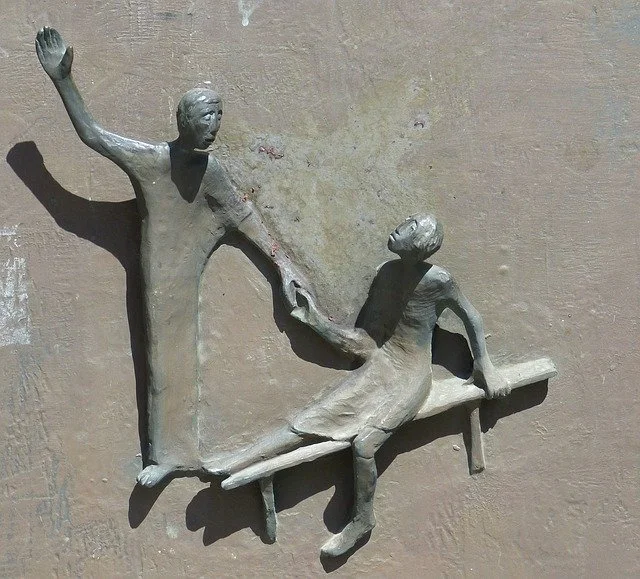On Tuesday the newly minted president went to the National Cathedral for a worship service to round out the inaugural festivities. What he got there was neither what he expected nor to his liking.
Extremists for Love
Two events this week have saddened me. One is the terrible terrorist attack on Bourbon Street in New Orleans, which reminds us again that hate and religious extremism are frequent bedfellows. The driver of the truck that plowed into crowds of people in the French Quarter, killing 15 and injuring many more, is said to have been inspired by ISIS, the group of Islamist extremists that arose in Iraq and Syria partly in response to the occupation of Iraq by US forces.
The God Who Stoops
The Monster Tamer
It should come as no surprise that we are just as divided after Tuesday’s election results as we were on Monday. We have the promise of a smooth transition this time because Kamala Harris did the grown-up thing and conceded that she lost, but the divisions in our country are nevertheless stark and real.
How to Think
The other day I started reading a book I have had on my to-read list for years: A People's History of the United States by Howard Zinn. It feels a little weird to be plugging a book that has been around for nearly half a century, but I can't recommend this work highly enough. Unlike most history textbooks, Zinn's book considers the history of our country from the underside.
Workin' Man Blues
My dad was a big fan of Merle Haggard, so I grew up listening to songs like “Workin’ Man Blues” and being indoctrinated into the worldview that they represented. As I got older, I realized that I didn’t care much for Mr. Haggard’s politics (“Fightin’ Side of Me” and “Okie from Muskogee” come to mind), but I’ll admit that in his heyday he was a heck of a songwriter.
Epaphroditus: The Web of Love
Rahab: Doing What She Could
One of the mistakes people make in reading the Bible is expecting the people they find there to be upstanding religious folks. But that makes for a two-dimensional depiction of the characters in the Bible, while they are in fact fully developed persons with motives as complex and mixed as our own. Not all of them are good people, and precious few measure up to our Sunday School depictions of what “Bible people” are supposed to represent.
The Pledge
The top two officers of the national setting of the United Church of Christ recently released a statement on the ongoing violence in Israel/Palestine and the campus protests that have rocked our nation in the past few weeks. Rev. Dr. Karen Georgia Thompson, General Minister, and Rev. Shari Prestemon, Acting Associate General Minister, say a lot of things in their statement that I agree with and believe to be true.
The Other Side of the Bedside
Prove Jesus Wrong
There are certain things I wish Jesus had never said. Sometimes I object to them because they place a demand on me that makes me uncomfortable—the command to repeatedly forgive offenders falls into this category. Other sayings of his bother me because they don’t fit neatly into my personal theology, such as certain parables that seem to depict God as vindictive or even violent. But what Jesus says in John 12:8 I object to because of the use it has been put to by subsequent interpreters. He says, “You always have the poor with you, but you do not always have me.”
Partners Not Puppets
I recently read a book by Michael Schur called How to Be Perfect. Schur was the principal writer of The Good Place, a TV show that, if you’ve seen it, you know it combines hilarious comedy with speculative moral philosophy in a remarkably creative way, and if you haven’t seen it, stop reading this reflection immediately, go to Netflix (subscribe if you have to!), and start watching it from the beginning. When you come up for air after helplessly bingeing several episodes, you’ll thank me.












